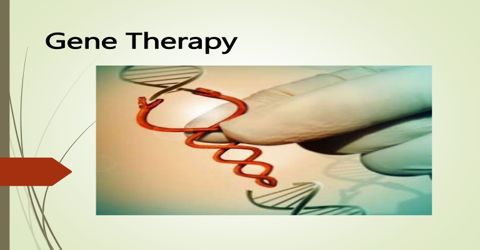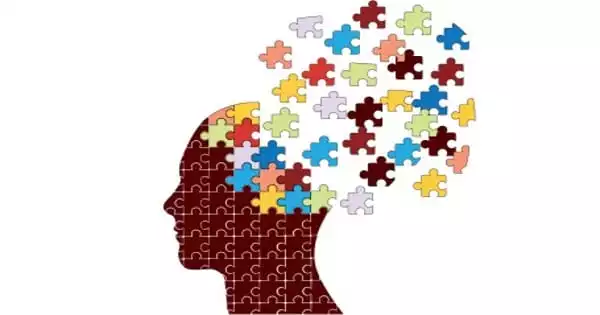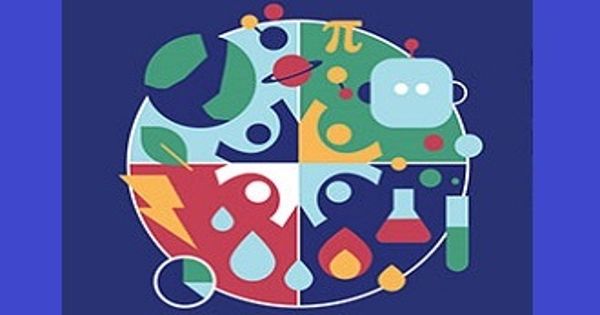Gene therapy is an experimental technique that uses genes to treat or prevent disease. In the future, this technique may permit doctors to treat a disorder by inserting a gene into a patient’s cells instead of using drugs or surgery. Gene therapy is when DNA is introduced into a patient to treat a genetic disease. The new DNA typically contains a functioning gene to correct the possessions of a disease-causing mutation. Researchers are testing several approaches to gene therapy, including:
- Replacing a mutated gene that causes disease with a healthy copy of the gene.
- Inactivating, or “knocking out,” a mutated gene that is functioning improperly.
- Introducing a new gene into the body to help fight a disease.
Although gene therapy is a promising treatment choice for a number of diseases (including inherited disorders, some types of cancer, and certain viral infections), the technique remains risky and is still under study to make sure that it will be safe and effective. Gene therapy is at present only being tested for the treatment of diseases that have no other cures.
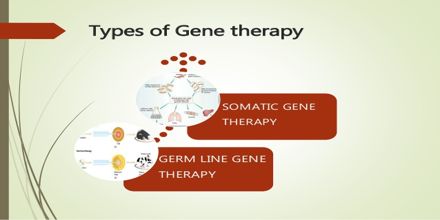
Types
There are two dissimilar types of gene therapy depending on which types of cells are treated:
Somatic gene therapy: transfer of a section of DNA to any cell of the body that doesn’t produce sperm or eggs. Effects of gene therapy will not be passed onto the patient’s children.
Germline gene therapy: transfer of a section of DNA to cells that produce eggs or sperm. Effects of gene therapy will be passed onto the patient’s children and subsequent generations.
With the germline therapy, however, it is possible to pass the corrected genes down to the next generation. This is done by having the gene inserted into the reproductive cells, so that the gene can be inherited by any future offspring.
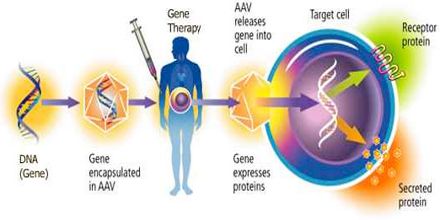
Challenges of gene therapy
Delivering the gene to the right place and switching it on:
- it is crucial that the new gene reaches the right cell
- delivering a gene into the wrong cell would be inefficient and could also cause health problems for the patient
- even once the right cell has been targeted the gene has to be turned on
- cells sometimes obstruct this process by shutting down genes that are showing unusual activity.
Avoiding the immune response:
The role of the immune system is to fight off intruders.
- Sometimes new genes introduced by gene therapy are considered potentially-harmful intruders.
- This can spark an immune response in the patient, that could be harmful to them.
- Scientists therefore have the challenge of finding a way to deliver genes without the immune system ‘noticing’.
- This is typically by using vectors that are less likely to trigger an immune response.
Gene therapy Treatment (Pros and Cons)
Gene therapy can be categorized in to two different types—somatic cell therapy and reproductive cell also referred to as germline therapy. Somatic cells involves targeting somatic cells for gene replacement, while reproductive cell therapy involves replacing defective genes in reproductive cells with correct genes. Changes made in the genetic makeup of somatic cells is only corrective for the patient. Alterations are however not inherited by offspring of the treated person.
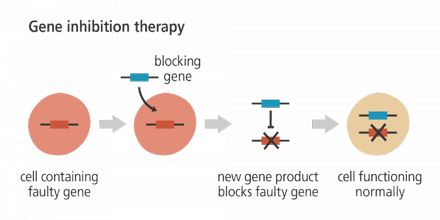
Advantages
Untapped Potential
One notable factor that gives gene therapy the edge is the remarkable therapeutic potential it has.
Replace Defective Cells
Humans have always been prone to diversity of diseases; as one cure is discovered, another disease emerges. We are regularly attacked by newer, more dangerous and vituperative types of germs and pathogens.
Eradicate Disease
Furthermore, targeting reproductive cells can get rid of such defects for good. People with genetic disorders such as Alzheimer’s disease, Huntington’s disease and Parkinson’s disease are among those who require gene therapy.
Disadvantages
Modify Human Capabilities
One con of gene therapy is that it may be used to enhance and modify human capabilities. If this was feasible, standards for normal human life would be altered for good. Even if certain countries experimented with this form of therapy, they could create unstoppable armies much like in those movies we’ve seen on the big screen.
Damage Gene Pool
If gene therapy was performed to a certain degree, it possibly could permanently change the human gene pool. Another thing would also be—this treatment therapy may possibly be for the rich only, and could make the rich more richer and the poor more poorer, indefinitely.
Rise in Disorders
While the most common choice as a vector, using the virus for such a purpose is not guaranteed. There’s an exact point in the host genome where the right should be brought in and there are no assurance that the viral enzyme responsible for this step will be able to bring in the right genes at the exact point in the host genome. In addition, the body may destroy the vector perceiving that it is a foreign body.
